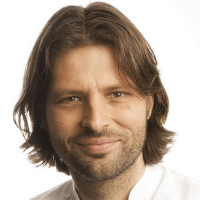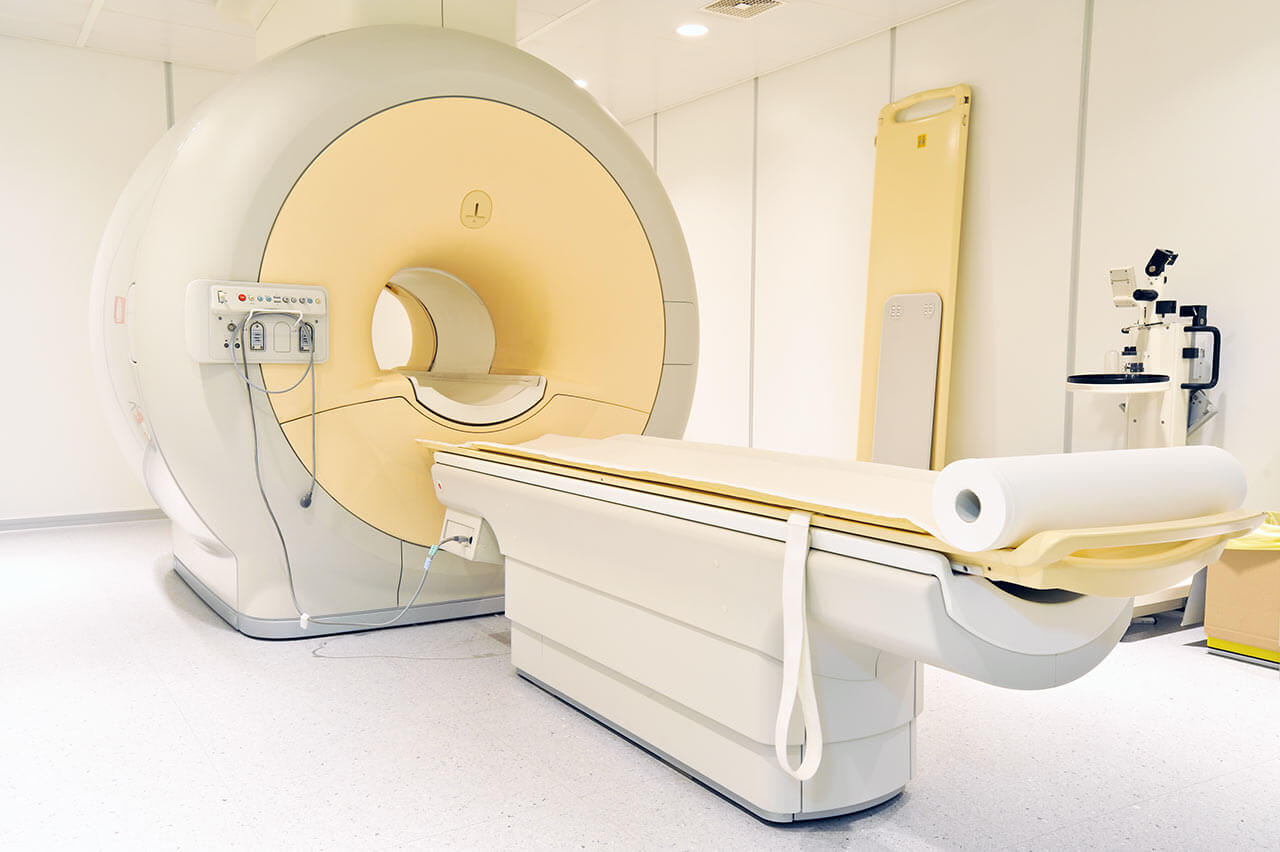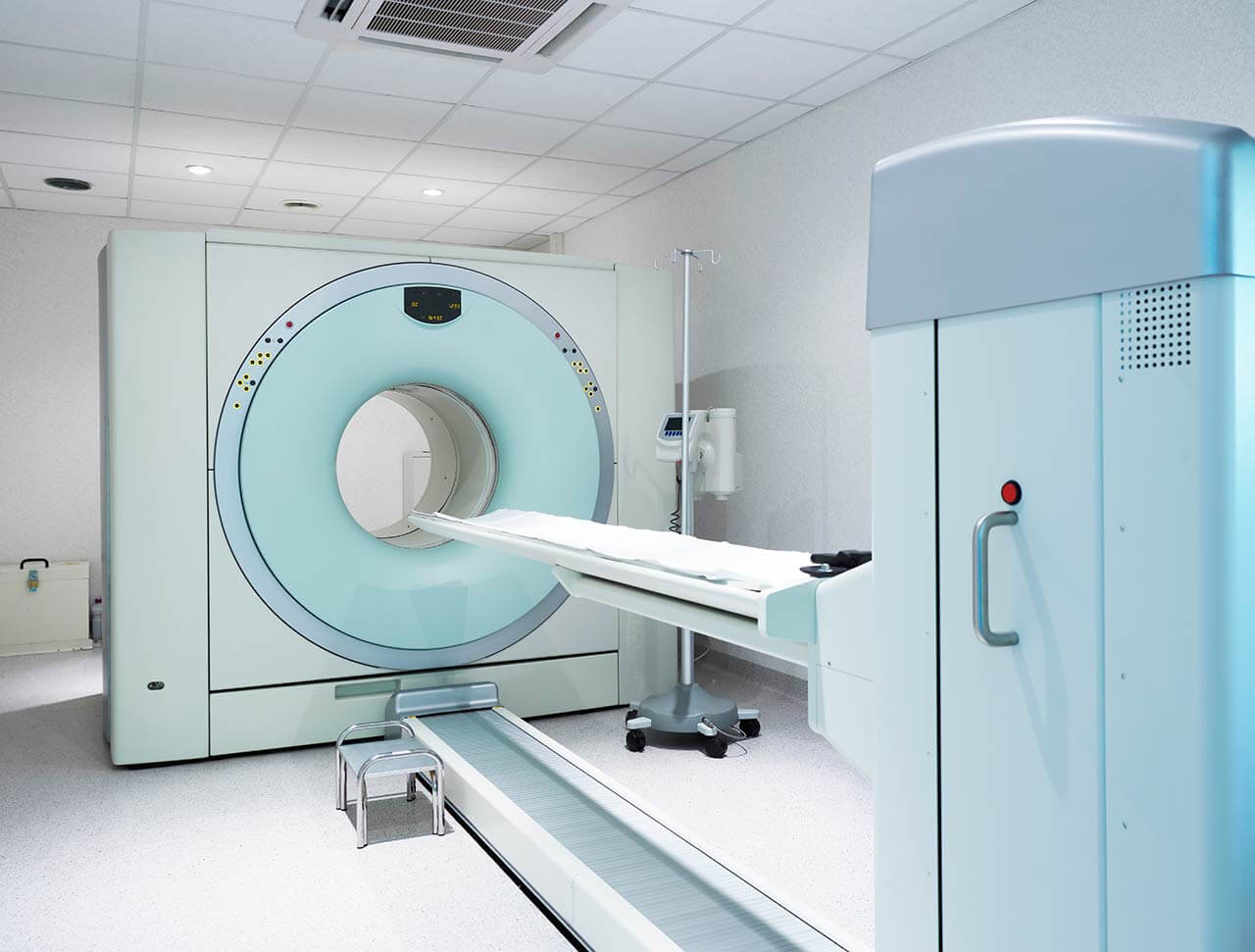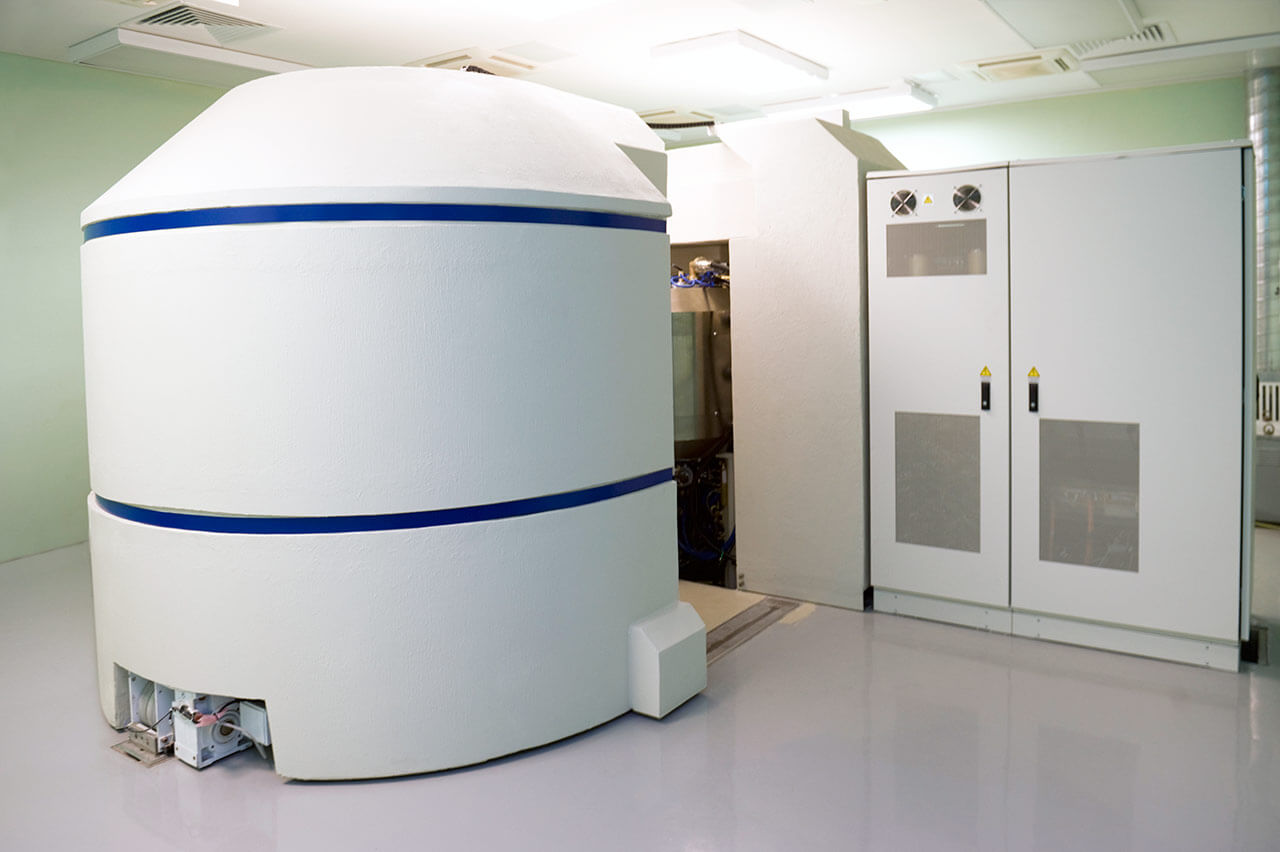
The program includes:
- Initial presentation in the hospital
- Clinical history taking
- General clinical examination
- Laboratory tests:
- Complete blood count
- Full biochemistry profile
- Liver and kidney function tests
- Coagulogram
- PSA blood test
- CT / PET-CT (if indicated)
- Treatment with Radium-223 dichloride (Xofigo®)
- Consultations of related specialists (if indicated)
- Symptomatic treatment
- Cost of essential medicines
- Nursing services
- Control examination
- Recommendations regarding further treatment
Indications
- Castration-resistant prostate cancer with confirmed osteoblastic bone metastases and no visceral metastases
How program is carried out
During the first visit, the physician will carry out a general physical examination and go through the results of previous laboratory and instrumental tests. After that, you will undergo the necessary additional tests such as the complete blood count, assessment of liver and kidney function, and PET / CT. This will allow the physician to assess how effective therapy with Radium-223 Dichloride (Xofigo®) will be and how well you will tolerate it. Also, the physician will calculate your individual dosage of the radionuclide.
Therapy with Radium-223 dichloride (Xofigo®) is carried out via intravenous administration of a solution with the radioactive isotope Radium-223 dichloride. The solution is injected through a catheter. This is a short procedure, it takes no more than 5 minutes. In most cases, the total time spent in the hospital is less than 1 hour.
After the infusion of Radium-223 (Xofigo®) you may feel nausea or notice swelling in your wrists and ankles. These are short-term side effects of the procedure and they will go away over time without additional treatment. Xofigo® is a source of alpha radiation which acts exactly in the place of the drug accumulation (i.e. in bone metastases), therefore the treatment is well tolerated.
After the Xofigo® injection, you are free to contact other people without posing a radiological hazard to them. During 1 week after the procedure, your blood, urine and feces will contain small doses of radiation, so your physician will recommend certain radiation safety measures.
You can leave the hospital right after the follow-up medical examination. The physician will give you detailed recommendations on radiation safety measures for the next 7 days, as well as determine a plan for further follow-up and treatment. As a rule, a full course of Xofigo® treatment consists of 6 injections, which are performed 4 weeks apart.
Required documents
- Medical records
- PSA blood test
- MRI/CT scan (not older than 3 months)
- Bone scintigraphy (if available)
- Biopsy results (if available)
Service
You may also book:
 BookingHealth Price from:
BookingHealth Price from:
About the department
The Department of Nuclear Medicine at the Central Clinic Bad Berka offers the full range of highly accurate diagnostics and modern therapy using radioactive substances. The experienced specialists of the department carry out scintigraphy of various organs, including the innovative Datscan method for the diagnostics of Parkinson's disease, a combined PET-CT study to examine patients with suspected cancer pathology or cardiological diseases, radionuclide ventriculography to assess cardiac pump function at rest and during exercise. The department is also particularly competent in certain types of therapies, in particular radiosynoviortesis and Xofigo® therapy. The department is headed by Dr. med. Franz Christoph Robiller.
The department has cutting-edge equipment for a combined PET-CT study, including PET-CT using fluorodeoxyglucose (FDG). FDG PET-CT is an excellent method, which helps to accurately detect cancer. The PET-CT scan procedure begins with the intravenous administration of an appropriate radiopharmaceutical. The scanning itself will be carried out approximately an hour after drug administration. During the first 20 minutes after the injection, it is important to relax and not to talk, or otherwise muscle work can lead to undesirable accumulation of the drug in the muscles, which can affect the accuracy of the result. After 20 minutes in a relaxed state, the patient takes an additional drug to contrast the intestines. The scanning itself takes about 20 minutes.
Scintigraphy is also one of the key diagnostic studies available in the department. This type of study is used to assess the function of the thyroid gland and parathyroid glands, the condition of the skeletal bones, myocardium, lungs, kidneys and sentinel lymph nodes. Scintigraphy allows the doctor to not only see the structure of the organs, but also visually assess their functioning. Thus, this type of study is very informative and enables the specialists of the department to choose the optimal treatment tactics.
In addition, the department specializes in therapy with the use of radioactive substances. Radiosynoviorthesis is an effective technique for the treatment of inflammatory joint diseases. This procedure is most often used to alleviate the symptoms of rheumatoid arthritis, seronegative spondyloarthropathy, arthrosis, as well as persistent pain after arthroscopic synovectomy. The procedure begins with the application of a special splint on the joint, after which it is punctured under strictly aseptic conditions (if necessary, after preliminary local anesthesia). The next step of the procedure is the administration of a contrast agent and the control of the position of the needle with the help of X-ray (except for knee radiosynoviorthesis). As soon as the needle takes the necessary position in the joint, the doctor will introduce a radiopharmaceutical.
Another department’s therapeutic offer is Xofigo® therapy. This type of treatment is used in adult patients with metastatic castration-resistant prostate cancer. The therapy involves 6 injections of a radiopharmaceutical with an interval of 4 weeks. The drug is administered intravenously.
The range of the department’s medical services includes:
- Diagnostics
- Combined PET-CT method, including with the use of fluorodeoxyglucose (FDG)
- Thyroid diagnostics
- Ultrasound scans
- Thyroid scintigraphy
- Radioactive iodine uptake test (it is usually performed before radioiodine therapy)
- Tumor scintigraphy in the presence of «cold» thyroid nodules
- Thyroid fine needle aspiration biopsy
- Skeletal scintigraphy
- Antigranulocyte scintigraphy for the diagnostics of inflammatory processes (for example, in case of suspected artificial joint infection)
- Myocardial scintigraphy
- Radionuclide ventriculography to determine the heart pumping function at rest and during exercise
- Perfusion and ventilation lung scintigraphy
- Kidney scintigraphy
- Sentinel lymph node scintigraphy
- Datscan scintigraphy for the differential diagnostics of Parkinson's disease and essential tremor
- Parathyroid scintigraphy
- Therapy
- Radiosynoviorthesis for the treatment of inflammatory joint diseases
- Xofigo® therapy for metastatic castration-resistant prostate cancer
- Other diagnostic and treatment methods
Curriculum vitae
Dr. med. Franz Christoph Robiller studied Medicine at the University of Jena. He had highly specialized training in Erfurt, Jena and in the Central Clinic Bad Berka of the RHÖN-KLINIKUM AG. Dr. Robiller was the Leading Senior Physician in the Department of Nuclear Medicine at the University Hospital Jena. One of the main tasks of the doctor’s daily work is cancer diagnostics using PET-CT. Another priority is scintigraphy of various organs. In the field of therapeutic options, the focus is on radiosynoviortesis to relieve joint pain and Xofigo® therapy to treat prostate cancer with bone metastases.
Photo of the doctor: (c) Zentralklinik Bad Berka GmbH
About hospital
The Central Clinic Bad Berka is a leading provider of advanced medical services in Thuringia. The clinic began its work in 1898 and during this time has gained the status of a multidisciplinary medical center, which regularly demonstrates the highest rates of treatment success. As the academic medical institution of the University Hospital Jena, the medical center in the picturesque spa city provides patients with high-quality and effective treatment at the highest scientific and technical level. It is noteworthy that the clinic admits not only German citizens, but also many patients from different parts of the world.
The clinic operates 21 specialized departments. The key areas of clinical practice include neurology, neurosurgery, general surgery, cardiology and cardiac surgery, orthopedics and traumatology, thoracic surgery and pulmonology, spinal surgery, palliative care and others.
The high quality of medical services is achieved through close interdisciplinary cooperation of specialists from various departments, the use of state-of-the-art medical equipment and the very latest developments in university medicine. The clinic staff consists of a team of highly qualified specialists who do everything possible to daily provide the most effective medical care focused on the individual needs and wishes of a particular patient. One of the main components of the professional concept of the clinic is a humane and friendly attitude to each patient.
In addition to the impeccable medical care, it is worth highlighting the unique architecture of the clinic building. With a 100-year history, the clinic was almost completely restored, but at the same time its atmosphere and architectural features were preserved. When crossing the threshold of the clinic, the patient finds himself in a huge hall with glass trim. On the roof of the inpatient station of the clinic one can find an impressive garden, which offers an equally magnificent view of the Ilm River Valley. Thus, the beautiful architecture and the surrounding green forests also have a good effect on the restoration of the patients’ health.
Photo: (c) depositphotos
Accommodation in hospital
Patients rooms
The patients of the Central Clinic Bad Berka live in comfortable and cozy rooms. The clinic uses its own patient accommodation scheme – two double rooms combined with one spacious relaxation room. The relaxation room has a sofa and a TV, whereas each of the patient rooms is equipped with comfortable beds, a TV and a telephone. Also, each patient room is equipped with an ensuite bathroom with shower and toilet. In the relaxation room, patients can have lunch together, watch TV or just chat. The reception of visitors also takes place here.
Meals and Menus
The patients of the clinic are offered tasty, varied and healthy three meals a day: buffet breakfast, hearty lunch and light dinner. If necessary, the patients can be offered on an individual menu.
The clinic also has a good cafe, which presents a wide selection of snacks, full dishes, desserts and drinks.
Further details
Standard rooms include:




